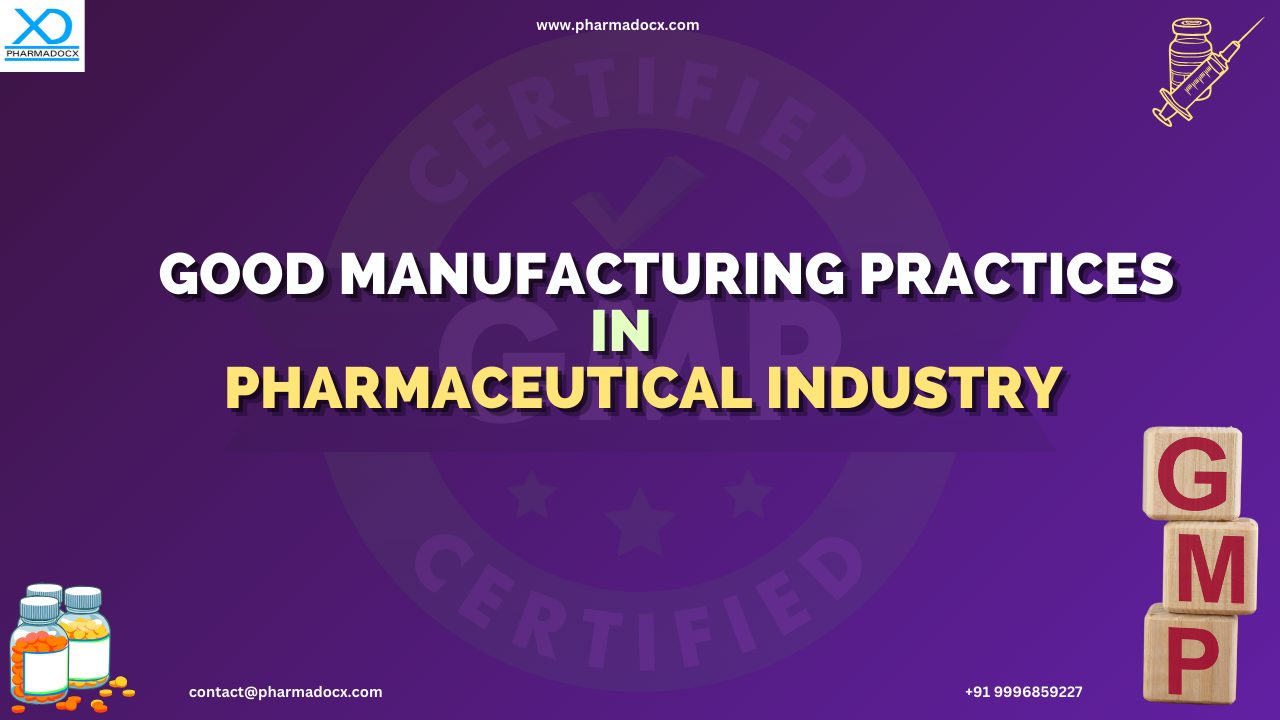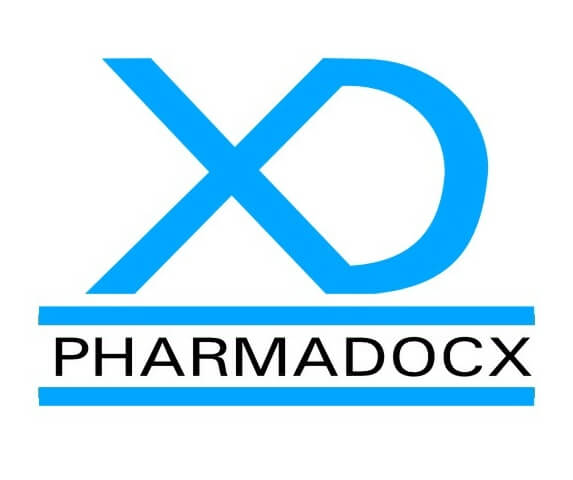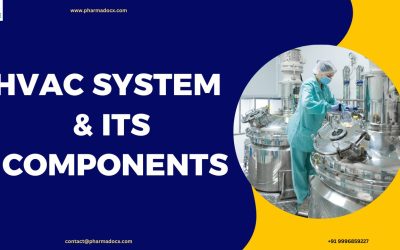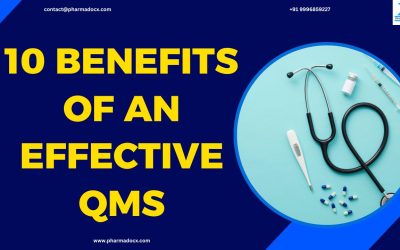Good manufacturing practices in pharma industry regulate all aspects of the drug-production process for patient safety and improved patient outcome. In this blog, we have provided a detailed overview of GMP in pharmaceutical industry. Additionally, we have provided tips on how to ensure GMP compliance in pharma companies.
What is GMP or good manufacturing practices?
Good manufacturing practices (GMP) is a system that sets guidelines for consistently manufacturing products as per defined quality benchmarks. GMP guidelines are applicable to food, cosmetics, and pharmaceuticals. However, in this blog, we will focus on good manufacturing practices in pharma industry. GMP covers every aspect of the manufacturing process to prevent cross-contamination, adulteration, and mislabelling. Pharma GMP guidelines are aimed at protecting patients from health hazards by regulating the quality, efficacy, and safety of pharmaceuticals.
GMP guidelines are developed to minimize pharmaceutical production associated risks that cannot be eliminated only by testing the finished product. Some of the risks in pharmaceutical production are as follows: unexpected cross-contamination or adulteration of drugs, incorrect labelling of containers, and addition of insufficient or too much of active ingredients. Good manufacturing practices provide detailed written guidelines for each step in the drug production process that could affect the quality of the final product.
Implementing GMP in your production process can help reduce losses and waste. Additionally, you can avoid product recalls, fines, and legal action for manufacturing substandard products. Thus, good manufacturing practices in pharma industry protects both patients and the company.
Aspects covered by good manufacturing practices in pharma industry
GMP guidelines regulate all aspects of production that will impact the safety and quality of manufactured drugs. They cover covers all areas of production from raw materials, facilities, and equipment to staff training and personal hygiene. Aspects of production regulated are as follows:
- Manufacturing building, environment, and facilities
- Manufacturing equipment and instrument
- Raw materials
- Personnel
- Quality management
- Staff sanitation and hygiene
- Inspections and quality audits
- Product complaints
- Documentation and recordkeeping
- Validation and qualification
What are the principles of good manufacturing practices in pharma industry?
- Manufacturing processes: Quality should be ingrained in the manufacturing process. The manufacturing process should be designed and developed per quality guidelines and regulation. Additionally, the entire manufacturing process should be properly documented and made available to all employees. Furthermore, compliance with the manufacturing process developed per regulatory guidelines should be regularly evaluated. Any deviation from the standard process should be immediately reported. Moreover, corrective action should be implemented as soon as possible.
- Manufactured products: The manufactured products must be constantly tested for quality. The raw materials procured should be tested for quality so that the finished product will meet quality benchmarks. Batches of products should be tested for regulatory compliance. Furthermore, the finished product should be labelled and packaged per industry norms.
- Manufacturing facility: Proper sanitation should be maintained at the manufacturing facility. The facility should be cleaned to avoid cross-contamination. All equipment and instrument should be properly calibrated, cleaned, and regularly checked for their fitness. It is important to ensure the equipment and instrument consistently manufacture high quality products.
- Personnel: All personnel involved in the production process should be adequately trained. Additionally, they should be made aware of their roles and responsibilities. Moreover, training programs on the latest GMP guidelines should be conducted. The staff is expected to strictly adhere to the manufacturing process and regulations and will be accountable for their action. Furthermore, staff regulatory compliance should be constantly assessed.
These GMP principles will help pharma companies comply with strict quality standards throughout the entire production process. Thus, it is of paramount importance for pharma companies to function per good manufacturing practices in pharma industry. This will facilitate consistent drug quality and safety.
Pharmaceutical industry GMP guidelines
Meeting GMP guidelines will help pharma companies improve their product quality, safety, and efficacy and customer satisfaction, thereby increase sales. We have presented some of the guidelines mentioned in pharmaceutical industry GMP.
- Document procedures and processes
- Maintain and regularly calibrate systems, facilities, and equipment
- Prevent contamination by ensuring cleanliness of systems, facilities, and equipment
- Prioritize and integrate quality into daily workflow
- Create standard operating procedures (SOPs)
- Validate the effectiveness of SOPs created
- Enforce and implement SOPs and other working instructions per regulatory guidelines
- Design and use working systems
- Regularly conduct GMP audits
- Impart training on latest GMP guidelines and requirements
We have presented some of the GMP guidelines. For further details on the guidelines, contact us.
How to ensure GMP compliance in pharma company?
Compliance with GMP guidelines positively impacts the reputation of pharma companies and reduces product recalls. Additionally, the company can avoid regulatory sanctions and negative reports.
Process and system validation
Validation is the documented evidence of instruments, processes, and activities functioning as expected. GMP guidelines require validation of various aspects of the drug production process.
- Process validation
- Cleaning and sanitation process validation
- Validation of analytical method being used
- Computer system validation
A team of experts on good manufacturing practices in pharma companies
Every pharma company should have a quality team who will be responsible for ensuring compliance with quality guidelines. The team will perform quality assessments on operations and workflow to identify non-conformities and implement corrective actions. The quality experts will be responsible for improving the current manufacturing process and compliance with GMP guidelines. Additionally, they will regularly monitor the functioning of instruments and equipment and periodically train the staff.
GMP audits
GMP audits are vital for assessing GMP guideline compliance in the company. It is used to check whether the manufacturing process being used is per GMP guidelines. Thus, GMP audits can minimize the risk of contamination, adulteration, and mislabelling, which have adverse patient outcome. By conducting surprise audits, a more accurate insight into the facility’s day to day activity can be gained. This can help identify root causes of non-conformities. Then, the findings can be used to take actions. Additionally, GMP audits help maintain the company reputation by preventing substandard drugs from entering the market.
Regular GMP audits will help improve the performance of the following aspects involved in drug production:
- Equipment, instrument, and machinery
- Raw materials and supplies
- Various steps of the manufacturing process
- Premises and facilities
- Quality control systems
- Labelling and packaging of the drugs
- Quality management systems
- Sales
- Customer satisfaction and service
- Staff regulatory compliance
- GMP training
Compliance training programs for personnel
Compliance training programs should be regularly imparted to keep staff abreast of the latest GMP regulations. These trainings help continuously improve GMP compliance of operations or systems involved in manufacturing drugs. Furthermore, training programs provide the personnel with a better understanding of GMP guidelines. Educating staff about GMP requirements is the best way to ensure compliance with GMP standards. Additionally, they should be trained on proper equipment handling, recordkeeping, sanitation, labelling, and SOPs to reduce errors and maintain compliance.
FAQs on good manufacturing practices in pharma industry
Is manufacturing process GMP compliance necessary even if there is a quality control facility?
Yes, it is absolutely necessary. Quality should be ingrained in every step of the manufacturing process. It is not possible to test every single drug that is manufactured. Small batches of drugs are tested. Testing all the drugs would waste the drug in quality testing and would not reach the consumers. GMP compliance will prevent errors that cannot be eliminated at a later stage by quality control of the final product. GMP compliance would indicate every unit of drug produced is of the same quality as the units being tested in quality control facilities.
Does GMP compliance help boost business opportunities?
Yes, of course! GMP compliance increases trust among consumers. Consumers will prefer GMP compliant drug manufacturers. This will increase sales. GMP compliance will help boost pharmaceutical export opportunities. Most countries will not accept drugs that have not been manufactured according to the GMP guidelines. Thus, manufacturing drugs per GMP guidelines will boost business opportunities by making your products eligible for export.
Why is GMP compliance important?
GMP guidelines have been developed to ensure high-quality, safe, and effective drugs are consistently manufactured. Poor quality drugs are a health hazard. Additionally, manufacturing substandard drugs can lead to product recalls and penalties. This will also tarnish the company reputation. Thus, GMP compliance is important not only for the protection of public health but also for maintaining company reputation.
The team of experts at Pharmadocx Consultants can help you easily secure the GMP certificate. To avail our GMP certificate assistance service, call/Whatsapp on 9996859227 or drop an email at [email protected].





